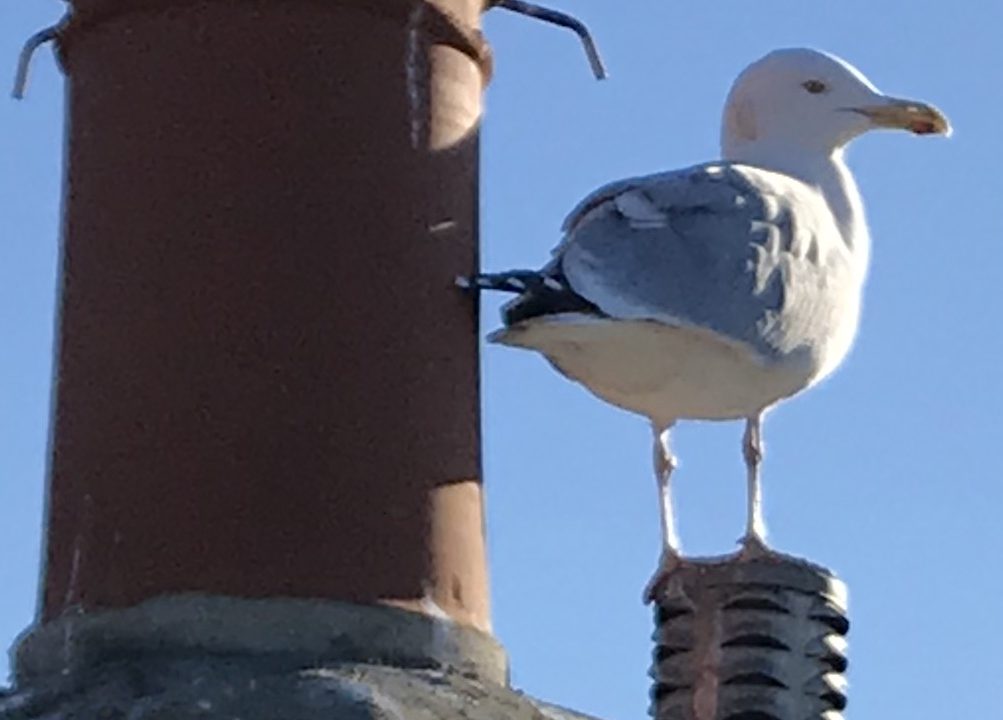In the opinion of East Sussex WRAS (Wildlife Rescue & Ambulance Service) there is a huge wildlife crisis in East Sussex due to a combination of factors. Some RSPCA and rescue centres have closed and others are running a much reduced service. Coupled with this is the growth of avian flu which is killing large numbers of gulls along the South coast.
In Sussex, many gulls have been brought to various locations sadly deceased. The areas mainly affected are Brighton & Hove but calls are now being received about gulls with the same symptoms in Eastbourne & Seaford. The symptoms include lethargy, gurgling, coughing, vomiting and the inability to stand up and whilst some of these symptoms vary, they are causing quick mortality in gulls and could be related to avian influenza.
DEFRA (Department for Environment, Food and Rural Affairs) are currently investigating but they urge us not to handle deceased gulls but to report the birds to them.
Due to the high risk of infection, WRAS are currently unable to admit gulls for treatment, in order to protect the birds currently in care but they are triaging on a case-by-case basis. They advise members of the public to take sick gulls (if they are able to safely) to their nearest veterinary practice who see wildlife free of charge or to contact the RSPCA.
A spokesman for WRAS commented: “We are extremely sad that this is happening across Sussex: we are all avid gull lovers and this is devastating to their population.
“We are still reuniting as many chicks as we can with their parents, but please bear in mind we are a small charity with limited volunteers who often are working around full time jobs and family commitments.
“We aim to help as many of you as we can, but please, when calling us, be kind. We understand the frustration, more than anyone, with this situation but our volunteers have been on the receiving end of verbal abuse. We thank you for your patience during this trying time! We are still here to give advice.”
WRAS have asked that if you come across birds locally with the symptoms described above please report your findings using the contacts below.
DEFRA: 03459 33 55 77 RSPCA: 0300 1234 999
[Editors note: there are 2 outbreaks among domestic flocks (chickens) as well, in Bexhill and Guestling, with DEFRA imposed exclusion zones imposed around each outbreak.]
Image Credits: Nick Forman .




i have had pigeons, doves, herring gulls and one robin dying in my garden for 6 weeks now. Have contacted Defra and Rother DC as I’ve put bodies in my brown bin which presumably needs a special collection. I gather on the nature reserve in Rye Harbour it is herring gulls and black headed gulls affected. Sandwich terns came but went away without settling and a great number have died in Holland. We just hope it will not spread to ground nesting birds. Gannets are affected in the Firth of Forth and on St Kilda Skuas are suffering. it is affecting the whole of the UK. I do not know how the world poulations are faring. It is a tragedy. With sea birds many will be dying at sea so cannot be monitored.
For the interested reader / Radio 4 listener –
https://www.bbc.co.uk/sounds/play/m000t47k
Released On: 17 Mar 2021
“Chris van Tulleken on the human behaviours that are causing pandemics, paying the price for getting too close to animals by degrading their territory and allowing viruses to jump. As we’ve all been locked down for one virus our poultry have been locked down for another. Currently all chicken farms in the UK are behind closed doors due to an H5N8 outbreak across Europe. In Russia there have been some cases in people this year (2021) but so far it has not passed from human to human. In 1997 the H5N1 Bird Flu outbreak in Hong Kong poultry markets infected a small number of people but had a 30 % mortality rate including children. Virologist Professor Malik Peiris was at the centre of the outbreak and recalls the concern that a pandemic was on the cards. Culling of all poultry flocks halted that event but not before the virus entered the wild bird population – a reservoir where the virus ‘card pack is shuffling.’ Professor Nicola Lewis explains how common dabbling ducks are able to fly hundreds of miles in one hit, migrating across the world and intermingling with domestic animals. An ever increasing number of rice paddy fields is another risk factor while Dr Jessica Leibler underlines the contribution of industrial poultry and pig farming to viruses jumping. We know it would take a small number of mutations for bird flu to become human to human transmissible. NERVTAG virologist Wendy Barclay says, in the end, a bird flu pandemic is inevitable.
If you find dead or sick wild waterfowl (swans, geese or ducks) or other dead wild birds, such as gulls or birds of prey, do not touch them but in the UK call the Defra helpline (03459 33 55 77).”